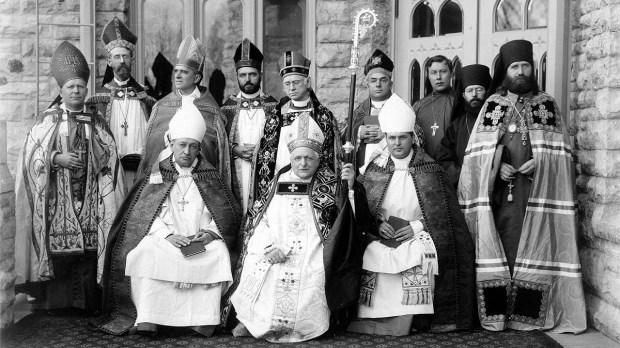Lenten Campaign 2025
This content is free of charge, as are all our articles.
Support us with a donation that is tax-deductible and enable us to continue to reach millions of readers.
During the past century, much emphasis has been placed on reuniting all Christians. This is a difficult task, as Christians have splintered off in countless directions for the past thousand years.
Yet, there remains hope that each year will bring us closer to a unity that will endure.
Often the word “ecumenical” is used to describe any effort to reunite Christians.
What does it mean?
The USCCB offers a succinct definition on their website.
Ecumenism, from the Greek word “oikoumene,” meaning “the whole inhabited world,” is the promotion of cooperation and unity among Christians. Jesus Christ founded one Church and, in the midst of his Passion, prayed, “That they may all be one.” (John 17:21)
The Second Vatican Council offers a similar definition of this term in its Decree on Ecumenism.
Everywhere large numbers have felt the impulse of this grace, and among our separated brethren also there increases from day to day the movement, fostered by the grace of the Holy Spirit, for the restoration of unity among all Christians. This movement toward unity is called “ecumenical.” Those belong to it who invoke the Triune God and confess Jesus as Lord and Savior, doing this not merely as individuals but also as corporate bodies. For almost everyone regards the body in which he has heard the Gospel as his Church and indeed, God’s Church. All however, though in different ways, long for the one visible Church of God, a Church truly universal and set forth into the world that the world may be converted to the Gospel and so be saved, to the glory of God.
Furthermore, the word is often tied to “ecumenical movements,” which are explained in the same document.
The term “ecumenical movement” indicates the initiatives and activities planned and undertaken, according to the various needs of the Church and as opportunities offer, to promote Christian unity.
The Church continues on this ecumenical journey and desires, as Christ desires, “That they may all be one.” (John 17:21)



